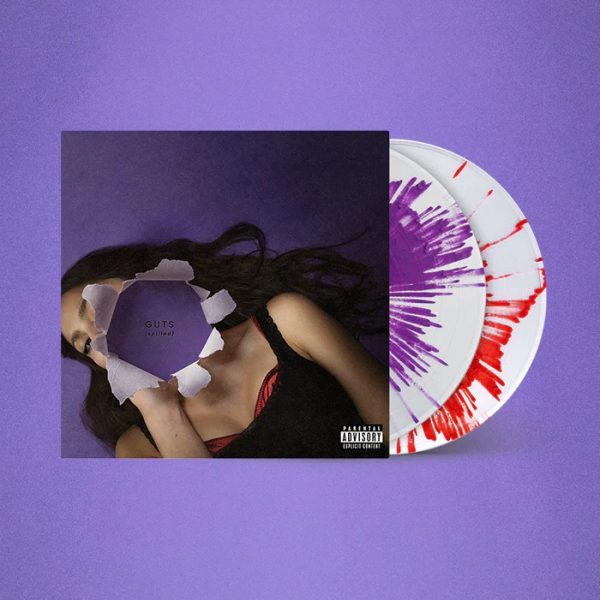Review: Fearless (Taylor’s Version) is the only version that should be listened to
Taylor Swift’s new release Fearless (Taylor’s Version) clearly showcases her development as an artist
Photo Taylor Swift
The cover art for Taylor Swift’s latest release, Fearless (Taylor’s Version).
April 14, 2021
In 2019, Taylor Swift announced that she was planning to re-record her first six albums in order to obtain full rights to her music. On April 9, Swift released Fearless (Taylor’s Version). Swift was pushed to re-record her albums because her old label, Big Machine Label Group, was sold. Not only was the label sold, but so were the rights to Swift’s first albums. These re-releases will give her the rights to the entirety of her music.
Fearless (Taylor’s Version) contains all of the songs from both the 2008 Fearless album and 2009’s Fearless: Platinum Edition album. The album also includes six “From the Vault” songs: six songs that Swift wrote in the Fearless era, but never put on the album.
The album brings new life to classic hits. Swift’s musical versatility and her reach over multiple genres makes this plan to re-record her music such a unique process. Through classics on the album like “Love Story,” “Fifteen” and “You’re Not Sorry,” it is blatantly clear how much Swift’s voice and style have grown and evolved.
Specifically, with “Love Story,” Swift’s original recording of the track hosted additional singers harmonizing in the background to make her voice sound stronger; however, the re-recording features only Swift’s voice with any supplementary harmonies performed by her. This amplifies both the strength and growth in her voice since the 2008 release.
My favorite track on Fearless has always been “Forever and Always,” especially the piano version on Fearless: Platinum Edition. Swift’s re-recording of this hit showcases the maturity and added depth in her voice in addition to the nostalgia that the familiar chords and lyrics bring.
One of my favorite parts of the album was the “From the Vault” section, consisting of unreleased songs Swift had written in 2008. The “From the Vault” selection includes “You All Over Me,” “Mr. Perfectly Fine,” “We Were Happy,” “That’s When,” “Don’t You” and “Bye Bye Baby.”
Both “You All Over Me” and “That’s When” feature country artists Maren Morris and Keith Urban, highlighting the country aura of the original album. I think Swift included these country artists in an attempt to preserve the country aspects of the album because her voice has evolved away from the genre so much.
My favorite “From the Vault” releases have to be “We Were Happy” and “You All Over Me.” However, “Don’t You” comes in at a close third.
“We Were Happy” is more of a slower and simpler melody that reminds me of tracks, like “White Horse” and “Change.” The lyrics beautifully recount a story of a happy relationship that ends due to dying feelings. The storyline and music complement each other almost perfectly.
My second favorite, “You All Over Me,” (featuring Maren Morris), reminds me a lot of “Betty” and other songs from Swift’s recent album Folklore. The song opens with harmonica and a familiar sound that can only be credited to Aaron Dessner, a member of the band The National and writer who worked with Swift on her recent albums.
This re-release, the first of hopefully many, showed Swift’s growth as an artist, allowing her to receive the credit she deserves for her artistry. The album adds a degree of retrospection to the music many of us grew up with, making Taylor’s Version my preferred form of the Fearless album. I think the re-releases will take Swift and her fans on a journey through her and their own lives, reuniting the fan base.
I have always listened to Swift growing up. When I listened to Fearless the first time it was released, I loved each song, but had almost no understanding of the lyrics. Obviously, as I have grown up, I now understand the lyrics and often find myself relating to many of them. Taylor’s Version, acted as a reminder of not only Swift’s growth, but my personal experience growing up.






















